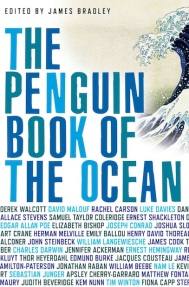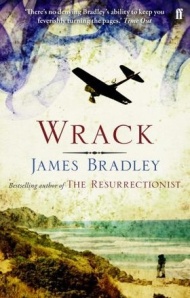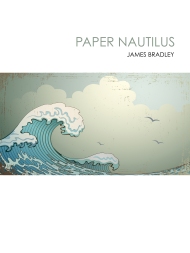Callum Roberts, Ocean of Life
 Early in his encyclopaedic and deeply alarming new book, Ocean of Life, marine scientist Callum Roberts poses a question. How is it, he asks, that we are so oblivious to the state of the oceans that an event such as 1998’s marine temperature spike, which killed 70 to 90% of the coral in the Indian Ocean and a quarter of coral worldwide can pass virtually unnoticed outside the world of marine science? After all, if a quarter of the world’s forests had withered and died in a single summer it seems safe to assume we would have demanded not just answers, but action to prevent a repeat of such a disaster.
Early in his encyclopaedic and deeply alarming new book, Ocean of Life, marine scientist Callum Roberts poses a question. How is it, he asks, that we are so oblivious to the state of the oceans that an event such as 1998’s marine temperature spike, which killed 70 to 90% of the coral in the Indian Ocean and a quarter of coral worldwide can pass virtually unnoticed outside the world of marine science? After all, if a quarter of the world’s forests had withered and died in a single summer it seems safe to assume we would have demanded not just answers, but action to prevent a repeat of such a disaster.
The answer is complex, of course. Part of it is undoubtedly ignorance. Part of it is, as Roberts acknowledges, symptomatic of a larger inability to comprehend the scale of the environmental crisis unfolding around us. Part of it is also, one suspects, a function of our tendency to imagine the oceans as so immense and timeless they must by their very nature be inexhaustible.
The optimist in me would like to believe Ocean of Life has the potential to begin to unravel some of these assumptions: certainly it should be required reading not just for anybody with an interest in the oceans and marine ecosystems, but for politicians, policymakers and business leaders around the world. Not simply because the problems we face are so urgent, but because as well as managing to illustrate the complexity and scale of the challenges we face better than any book I have read it does something that is even more important, which is to begin to map out a program for change.
Yet despite its deliberately positive message of change I suspect Ocean of Life is likely to prove deeply shocking to many readers. For as Roberts lays out the problems one by one, a truly frightening picture begins to emerge, one best communicated in the statistics that fill the book’s pages. 50 years ago, for instance, great schools of bluefin tuna chased through the waters of the Atlantic. Only half a century those schools are gone, with only one tuna now remaining for every thirty then. In the Pacific, likewise, the numbers of the largest and most majestic of turtles, the leatherback, a creature that can grow up to three metres in length and weigh more than two tonnes, have declined 95% in the same period.
These sorts of figures are representative of a larger crisis for ocean megafauna – large creatures such as whales, dolphins, sharks, rays and turtles – numbers of which are down more than 75% worldwide. But they are also only the tip of the iceberg. Fish populations are also in crisis, a fact made abundantly clear by research showing that in English and Welsh fisheries the average catch per hour today is only 6% of what it was 120 years ago, a number made even starker by the disparity in the technology being brought to bear on the process, or by the collapse of the seemingly inexhaustible population of the sardines that once swarmed off the coast of Namibia each year.
Taken in isolation any of these figures would be disturbing. But as Roberts makes clear in lucid and deeply frightening chapters on acidification, pollution, algal blooms and the spreading dead zones generated by sediment and hydrogen sulphide eruptions from stagnant water, marine ecosystems now face a perfect storm of challenges. As he observes of coral (drawing on research carried out here in Australia) while many reefs might survive two degrees of warming if they were in good health, most are already struggling with pollution, agricultural runoff and sediment, making them vulnerable to much smaller shifts in temperature than are currently projected.
That Ocean of Life doesn’t prove as depressing as it might is partly down to Roberts’ sheer enthusiasm: even when confronted with the destruction of entire ecosystems he remains curiously upbeat. It also helps that his enthusiasm is matched by a pleasing evenhandedness and a preparedness to admit the limits of available research.
Yet it is also, I suspect, a rhetorical manoeuvre. For Ocean of Life is not simply a lament for what has been lost. Instead it is an attempt to map out a manifesto for change, beginning with a network of protected marine areas and bans on many forms of fishing and the development of global regulatory mechanisms capable of responding to the increasingly inventive – and increasingly destructive – ways we are exploiting marine environments.
How politically realistic these changes are is an open question: as Roberts himself acknowledges progress to date has been slow, and even in relatively wealthy and progressive jurisdictions such as Europe political considerations continue to override scientific reality in determining fishing quotas. Likewise it is difficult to see how any system of reserves will protect the oceans if greenhouse gas emissions are not brought rapidly under control. But there is still reason for optimism, not least because there is evidence marine ecosystems are capable of rapid recovery if given the opportunity.
Yet as Roberts eloquently puts it, once we set aside all the uncertainty one thing is certain, and that is that “[t]he world is living on borrowed time. We can’t cheat nature by taking more than is produced indefinitely, no matter how fervently politicians or captains of industry may wish it. Rich nations can outsource production to poor ones, but, at some point, fish stocks will collapse there too and then there will be no fish to be had at any price.”
Originally published in The Weekend Australian, 11 August 2012.









This is an important subject and Roberts dedication to it is commendable, as is this review. Nearly all the ocean is out of our sight, and I guess this keeps it out of mind too. Hopefully this book will help address that. It’s distressing that we are barely even aware of the changes we are making to the ocean. If we were aware of our impact would we be more careful? Perhaps, though it is an easy issue to ignore. I think for a long time there has been the sense that to f*&k with the ocean is to seek ones doom. Melville knew this. Even back then Moby Dick argued for us not to wholesale slaughter that which we don’t truly understand, didn’t it? Hopefully this book will reach an audience, and make a mark, faster than Melville’s did.